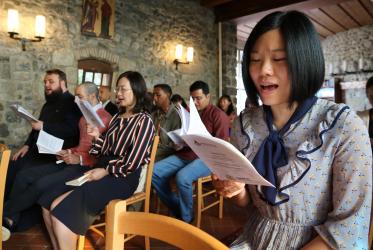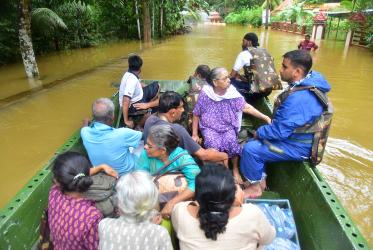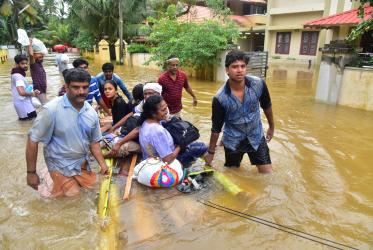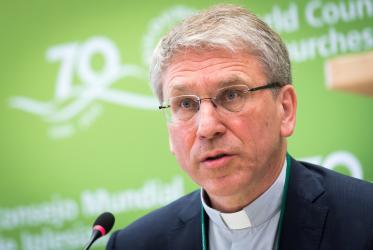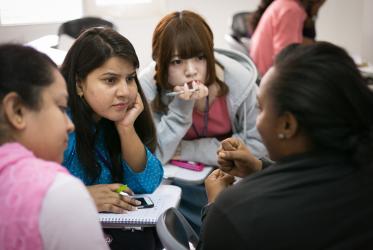Displaying 61 - 80 of 142
18 October 2018
Paving the way for ecumenical studies, learning English in Bossey
24 September 2018
New students welcomed at WCC Bossey Ecumenical Institute
13 September 2018
#WCC70: A prayer about health and healing
20 July 2018
Aiming for unity within diversity in Asia
20 April 2018
Determined to make a difference
18 April 2018
Unifying faiths in peace and harmony through dialogue
10 April 2018
Asian church leaders exchange ideas on diaconia
19 December 2017
G20 summit: call to pray for peace in Hamburg
07 July 2017
G7 must address famine
22 May 2017

